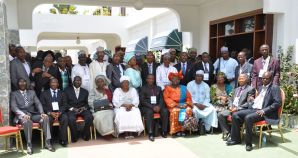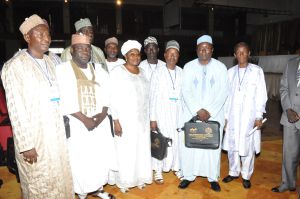
The UNESCO-UNEVOC International Centre: Who We Are | What We Do | Working With Us | Get in Touch
The UNEVOC Network: Learn About the Network | UNEVOC Network Directory
For Members: UNEVOC Centre Dashboard
Thematic Areas: Inclusion and Youth | Digital Transformation | Private Sector Engagement | SDGs and Greening TVET
Our Key Programmes & Projects: BILT: Bridging Innovation and Learning in TVET | Building TVET resilience | TVET Leadership Programme | WYSD: World Youth Skills Day
Past Activities: COVID-19 response | i-hubs project | TVET Global Forums | Virtual Conferences | YEM Knowledge Portal
Our Services & Resources: Publications | TVET Forum | TVET Country Profiles | TVETipedia Glossary | Innovative and Promising Practices | Toolkits for TVET Providers | Entrepreneurial Learning Guide
Events: Major TVET Events | UNEVOC Network News
2- 8 June 2013, Banjul, The Gambia

The conference featured some 56 technical papers from eight African countries, including The Gambia, Ghana, Kenya, Lesotho, Nigeria, Sierra Leone, Tanzania and Uganda. The conference main theme branched into five sub-themes, comprising:
The Commonwealth Association of Polytechnics in Africa (CAPA) is a grouping of technical and vocational education (TVE) institutions, mostly polytechnics, from various Commonwealth countries in Africa. CAPA was formed on the recommendation of the 7th Commonwealth Education Ministers Conference held in Accra, Ghana in March 1977. It was envisaged that it would play a role similar to that of the Association of Commonwealth Universities, but with a focus on Africa. CAPA has a membership of about 150 institutions in 17 African countries, and has the main objective of promoting TVET technology transfer and skills development in Africa. CAPA meets twice a year, May/June and November/December, in one of its member countries.
